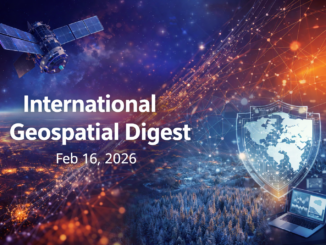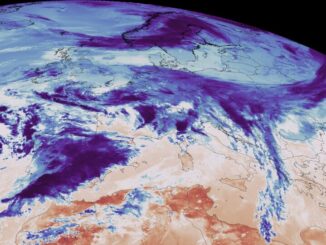
Applying to grad schools can be a big decision in your lifetime. Maybe you are a student who is inspired by a senior lecture and becomes interested in a certain research area; or maybe you are a working professional who wants to advance your career by extra degrees and knowledge. Regardless, a graduate program requires time, devotion, and preparations before you apply. This article shares tips in choosing grad schools with a GIS/Geomatics lens.
Finding the right program
You don’t have to study GIS in your home department. The interdisciplinary nature of the subject determines its existence in various departments, including geography, geomatics engineering, forestry, environmental management, information studies, and computer science. Think about what you would like to do after graduation so you can decide on which degree will be most useful.
Then, discover the reputation and statistics of desired programs yourself. How big is each cohort at master’s or PhD level? What courses does the program offer (are these courses selectable in recent years or do they only exist on university’s calendars)? Is the program thesis- or course-based? If it is thesis-based, does the program provide a minimum funding package? What are the admission requirements (e.g., minimum test scores and GPA)? Where did previous graduates end up? Most of the above questions can be answered by reading through the recruitment webpages of the program, but sometimes additional efforts are required in this process (e.g., contacting the corresponding program coordinator).
Locations of an institution is also an important factor of consideration. Do you prefer living in a big city or a small town? How is the surrounding climate? If you plan to study abroad, are you willing to adjust to new cultures and possibly to learn a new language?
Ranking plays a role in this process too. Many people, including myself, pay attention to university rankings because they are easy to understand and have consistent measures across continents. However, an authoritative subject ranking of GIS doesn’t seem to exist (the closest ones I found were Justin Holman’s blogfor American universities and ARWU’s remote sensing ranking). Therefore, don’t be superstitious about rankings and simply use them as references. A matched supervisor and an interesting research topic are things that should be considered more seriously.
Choosing a good supervisor
For research-based graduate studies, a good supervisor outweighs the subject ranking of a program, just as the overall ranking is less important than the subject one. Working with a full professor is probably a totally different experience compared with an assistant professor. Young scholars will likely be “pushier” than established personnel, while prestigious supervisors can write you influential reference letters upon your graduation. If you prefer more freedom and are confident about independent studies, an elder professor would be your good choice. If you like more hands-on guidance instead, a young scholar would be your good research partner.
It is worth mentioning that assistant professors don’t have the same job security as associate or full professors, therefore it is more likely that they will move to another institution or even get jobs in industry. This fact cannot be ignored for PhD students, whom in those cases will either have to choose a new supervisor in their current department, or relocate with their supervisor to a new institution. Both options are not ideal because it is hard to find a supervisor who works in the same area at PhD level, and program requirements vary a lot across universities. However, assistant professors are mostly well-trained in this extremely competitive job market. They are (or have to be) very productive and are more open to the latest technology. Similar to working for a start-up company, you just need to take your chances.
Depending on institutions, communications with potential supervisors before submitting your applications can be deterministic on your opportunities of receiving an offer. Your first email needs to be straightforward and specific. It should cover your strengths, the reasons you’d like to work with him/her, and your desired research topic. Reading the latest publications of your dream supervisors is a good way to learn about their recent projects and start a conversation. If a professor is not taking new students in the coming year, he or she will let you know right away. Often famous professors receive too many emails to read through. If you sincerely want to work with them, you have to spend time on your first email and follow-up if you don’t receive a response after several days.
Final remarks
Grad school applications require a lot of considerations. An interesting research topic will motivate you along the way whenever a challenge comes up, but always keep in mind that you need to be prepared to enter the job market after graduation. A graduate program fosters your intellectual background, but there’s no guarantee that your wisdom and skills will be seen and/or matched with potential employers. To discover the current needs from the industry, search for your desired jobs on the internet and take notes about the “Qualifications” section of those job postings. Courses and research topics can then be selected strategically to relate to the demands of the real world. You can also track the career paths of previous graduates from the programs you picked. Having an informational interview with one of those alumni will give you a better idea of what you might become.
Good luck to your applications!





Be the first to comment